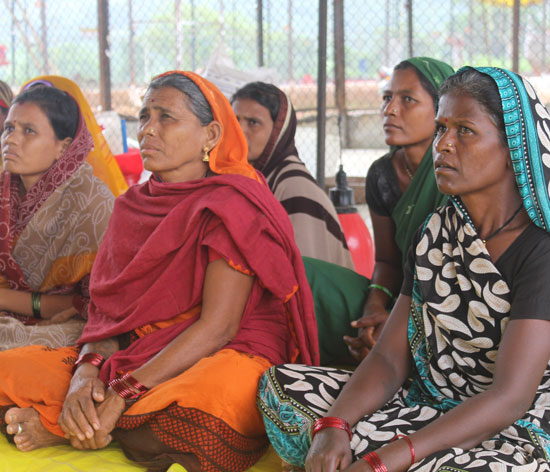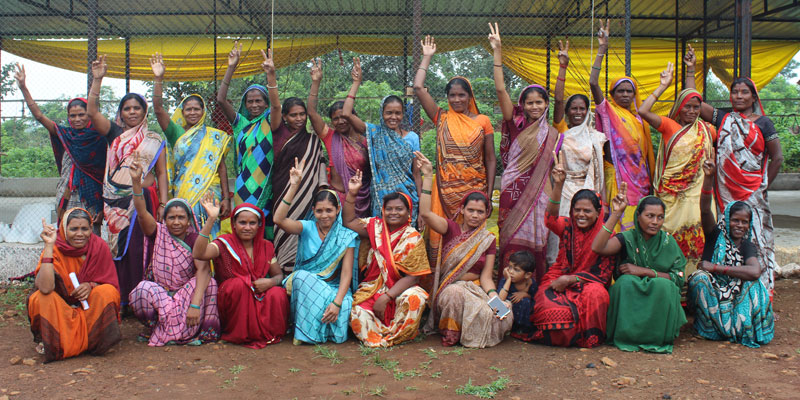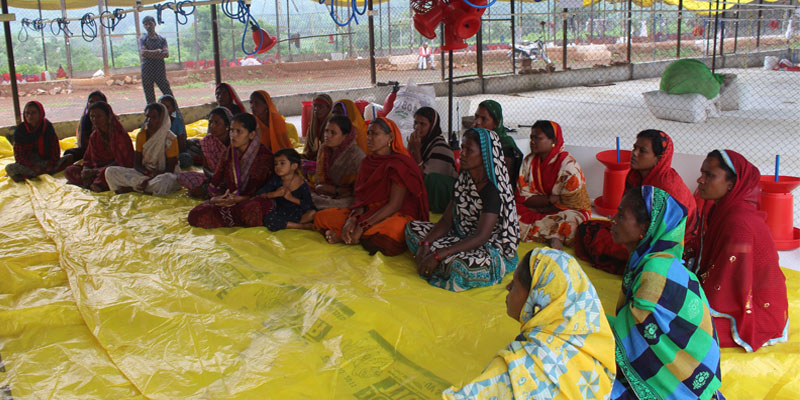
With an annual income of Rs20,000, making ends meet was a huge struggle for farmers Shanti Belsare and her husband Harilal. The couple from Chichati village in Amravati, Maharashtra, worked all year round on their tiny farm plot, but made barely enough to afford two square meals a day, let alone cover the costs of healthcare or their two children’s education. Therefore, they worked as day labourers to boost their income.
Several tribal farmers in India face the same plight as the Belsares due to their tiny and fragmented land-holdings, which prevent them from building sustainable livelihoods through farming alone. Having an alternative channel of income – such as livestock rearing – requires scientific inputs and support which many farmers lack. However, in the Belsares’ case, a Trusts-funded initiative has turned the tide.
A sustainable source of income
In 2021, Ms Belsare learnt about the Small Holder Poultry Project (SHPP) supported by the Trusts’ Sukhi Baliraja Initiative (SBI). The programme is a unique model of a commercial poultry project that provides beneficiaries with an alternate and increased stream of income. The intervention acts as a convergent ecosystem where multiple stakeholders, including communities, governments, and private-sector players align to make a sustainable difference in the lives of disadvantaged communities – in this case, tribal women farmers in Maharashtra.

Under SHPP, the beneficiaries are first introduced to poultry on a small scale and trained to rear animals effectively. Eager to learn the tricks of the trade, Ms Belsare signed up to learn the scientific methods of poultry farming from the Trusts’ field team. Tata Trusts through SBI organised different trainings on capacity building and basics of poultry production for all the 24 women poultry beneficiaries of Chichati village. In June 2021, she reared her first batch of chickens and earned a profit of Rs3,200. This encouraged her to keep going, and in August, her profit increased to Rs3,700. Till date, Ms Belsare has earned over Rs22,513, a sum that considerably augments her earnings from farming. Along with Ms Belsare, there are 23 other women engaged in poultry activities in Chichati village and have earned around Rs4.64 lakhs till date. Their current batch is ongoing and is expected to be liquidated in October 2022.
The poultry initiative is just one facet of SBI, whose goal is to help farmers supplement their inadequate and unpredictable crop incomes through livestock rearing. By supporting indigent farmers in scientifically rearing dairy cattle, goats, poultry, fish, etc., SBI enables them to diversify and augment their agricultural earnings.

A ray of hope
Under the Trusts’ poultry producer programme women poultry producers have earned an income of Rs30.56 lakhs by selling 889 metric tons of live bird weight. Around, 5.55 lakhs chicks have been placed with 320 women poultry producers across six blocks of Yavatmal and Amravati districts. Moreover, 701 poultry sheds have been constructed across six blocks of Yavatmal and Amravati districts.
“It’s true that hard work reaps success. I believed in myself and started my poultry business. Now, I am able to provide better for my family,” says Ms Belsare, who plans to expand her poultry business in the near future. Her feelings are echoed by other women beneficiaries in the region, whose lives have also been transformed by the SBI initiative.
About Trusts’ Sukhi Baliraja Initiative: SBI is part of the Trusts’ holistic livelihood strategy for the region to reduce distress among the farming community and empower them to face production and market risks.
In 2015, SBI moved from partner-based programme implementation to a direct implementation mode. The thrust of the SBI programme is now on sustainable agriculture, soil and water conservation, community-based microfinance, collective agriculture marketing through community-driven farmer producer organisations, and promoting poultry, fisheries and dairy development; together this forms a livelihood basket that is offered to the communities in the region. Currently, SBI projects have a presence in nine districts.
